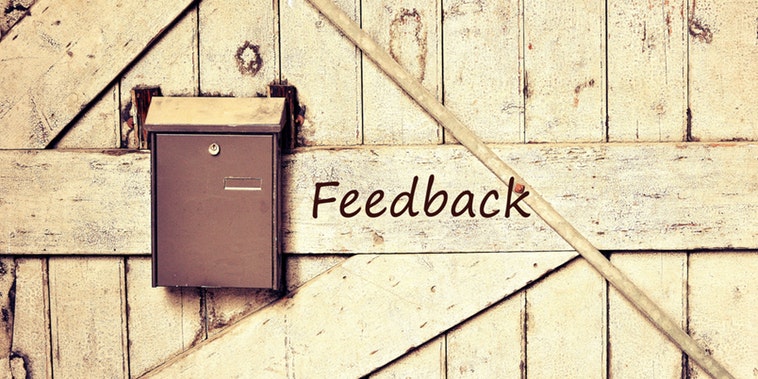There is one golden rule to writing, and that’s to never rely on a first draft. Great writing takes genuine care. Are you a professional writer? Maybe you’re just getting started. In any case, you should always be ready to put your work through a few quality passes. Editing and proofreading are cornerstones of engaging, entertaining writing. Without them, you’re risking more than just your readers’ confusion.
Some people feel they are happy with a first draft. They may not even think twice about proofing their work. However, this never works well in practice. Just as you would take your time to paint a work of art, you should take time to perfect your writing.
Not everyone uses editing services. However, there are plenty of benefits in reaching out for help. Software can only do so much to correct and check your writing!
Let’s take a look at why editing and proofreading are both so crucial to the writing process. You might be the most confident or experienced writer around. However, there are still plenty of benefits to getting in touch with an editor or proofreader.

The Difference Between Editing and Proofreading
Both proofreading and editing revolve around the same idea. That is, making sure your work is perfect. However, before we go any deeper, we need to consider a few of the underlying differences.
- Editing is not just re-reading your work. It’s checking your writing over for mistakes. Editing also covers any other problems which are likely to cause your readers confusion. It’s a ruthless process!
- You need to check for coherence, too. Do your ideas connect well with one another? Does the final text make sense? If not, why not?
- Proofreading is very similar. However, this usually comes into play after editing. This is where you give your work a final few passes for quality, style and form. It’s also where you’ll pick up on some of the most glaring errors. Even careful writers make mistakes! That goes for you and everyone else.
Editorial services will take on editing as well as proofreading. However, they won’t ever rush the process. A thorough edit and proofread may take hours depending on the length of a project. However, if a piece of writing is worth offering to the public, it should be of the highest quality. It’s common sense.

Don’t Rely on Computers to Edit Your Work
Anyone with access to a word processor such as Microsoft Word will already have a form of proofreader installed. However, you shouldn’t ever use this as your sole editor.
It’s tempting to use it as a basic editor, but do try to leave it to one side. Why? Simple – spellcheck systems can be very unreliable.
While third-party programs such as Grammarly and Readable go in-depth, there is still room for error. That is because editing and proofreading programs won’t necessarily understand different types of context. They only ever work at a base level. They can’t understand some word meanings or syntax use.
A human proofreading service is always going to give you more reliable support. You should be reading through your work several times, in any case. However, in a day and age where so many of us are reliant on software to do things for us, it’s tempting to let a program fix our errors.
Take it from us. If you’re serious about publishing an authoritative piece of writing, step away from the computer! Your readers will thank you for it.

The Benefits of Editing Services
Editorial services are fantastic at giving you that little bit of extra confidence. An experienced proofreader will know precisely what to look for when editing text. That doesn’t just mean that they’ll correct your spelling and grammar! All kinds of things can change the look and feel of your writing.
Editing and proofreading are crucial in the preparation of any public copy. Poorly-edited work won’t provide a great impression. What’s more, badly-proofed work can leave a negative impact on your reputation. You’re never going to encourage repeat readership if your work is sloppy.
Think about publishing houses and news agencies, too. If you rely only on software, your work stands a strong chance of getting rejected. Publishers want work which has been thoroughly analysed and proofed. Excellent proofreading is a mark of a writer’s talent, which is something they can get behind. Why risk sending anything less than your best work?
However, you won’t have to undertake it all yourself. Proofreading services will make sure that your writing is air-tight, and that there is no room for error.
Here are just a few other reasons why human editing is so important:

You’ll Get Second and Third Opinions
It’s hard to know whether your work is genuinely great until someone reads it. While you may have all the confidence in your ability to write, you must let an experienced reader cast an eye over it.
Second and third opinion proofreaders and editors will look carefully at your message. They’ll let you know if they have any concerns about what you’re trying to convey. It’s all too easy just to take your own opinion as read. Once you release your work to the public, whether it’s a book, a website or a journal article, you’re going to be at the mercy of many more opinions.
Therefore, it makes sense to pass your work through a few filters before launch day. That way, you can fine-tune your work for an even broader audience.

Proofreaders Will Help You Reach People
In addition to the above, a proofreader or editor isn’t just there to offer criticism. A talented editorial team will take a look at your work and help you find ways to appeal to your audience. As well as checking for coherence, they’ll propose ideas to help shape your work for the public eye.
It’s worth looking for support on your writing if you are going to go wide with it. Editors will help to make sure your ideas are well-presented. They will help you look at the bigger picture, and make suggestions to help you reformat your work for the next pass.
It’s not always easy to know what your public wants! A proofreader can help you reach that standard with years of experience. In fact, that brings us to our next point.
Experience Matters
It’s essential to find an experienced editorial team. While anyone can proofread to some extent, professional editors know what to look for to improve readability. A proofreader may be specialised in non-fiction, for example. They will know how to adjust your form to fit specific audiences.
What’s more, if you are writing for a journal, an experienced and qualified proofreader will check your references for you. They will ensure you are providing quality resources to your readers at every step of the way.
Thorough and Precise
The problem with computer proofreading is that it’s not exhaustive enough. It will only ever look for basic errors and issues it’s programmed to search for. A human reader, meanwhile, will apply much more sophisticated analysis to your work.
A talented editor will look for appropriate use of tone, structure, use of language, grammar, and more. They will painstakingly look through your work to cover each potential problem area. In many cases, a proofreader will choose to work with a hard copy of your text. It is easier to mark and reference errors this way!
Precision and time given to proofreading are key. After all, you can’t rush fantastic writing. Effective proofreading can make all the difference.
Editing and Proofreading 101: The Bottom Line
Re-reading and editing your work may seem like a chore. However, if you are passionate about your writing and you genuinely care about your readers, you will need to give it as much time as it takes. That’s why so many writers look to editing services to help take work off their hands.
No piece of writing should be declared fit to publish without some form of proofing and checking. A professional can pick out points and issues you may not have noticed. Even the world’s most talented writers rely on proofreading to ensure their work is at its best.
You should always be ready to re-read your work. Being willing to edit and proofread your first draft can be daunting at first. Many writers find themselves struggling to commit to further drafts and edits. In some cases, it’s a matter of giving up a lot of control!
However, proofing, also known as proofreading 101, isn’t about losing control. Just as all products and services go through quality management, writing should go through the same measures. If you want to engage with and entertain your readers, you should never submit a first draft. Doing so will put you at risk of rejection.
If you’re interested to learn more about professional editing and writing services, why not read our further guides? PremierProse’s proofreading and editing team will always be on hand to help.



